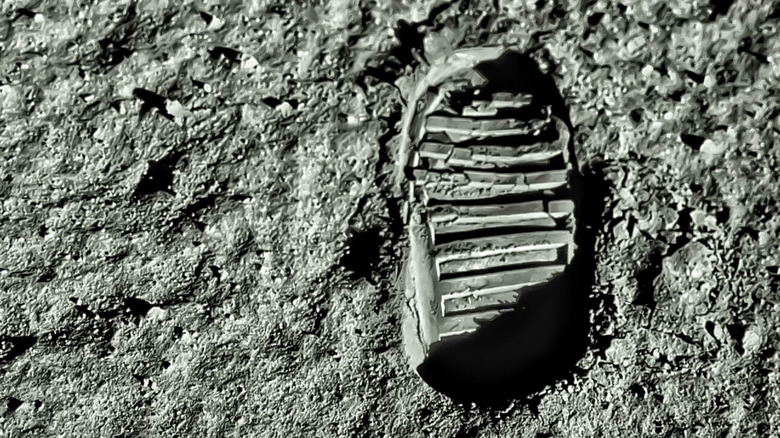The Real Reason Neil Armstrong Had To Quarantine Upon Returning To Earth
In 1957 and 1961, the Soviet Union made history as the first nation to put an artificial satellite — and then a person — into space, where previously countries had only launched animals. In the West, however, 1969 was a year that would completely overshadow these accomplishments and forever changed humanity's relationship with space. That year Neil Armstrong and Buzz Aldrin were the first humans to set foot on the moon.
As the first non-Earth body that had ever been visited in person, Apollo 11 was a groundbreaking success that overcame many dangerous hurdles. As the first of its kind, the mission was considered so risky that a speech was prepared for President Nixon in the event that the two astronauts could not be recovered (via Watergate.info). Yet as the capsule carrying the crew safely parachuted back to Earth, some scientists feared that their return could spark an unimaginable health crisis (via Mental Floss).
The possibility of a lunar virus led to a serious, but flawed, containment effort
While the moon was far from a complete mystery to researchers in the years leading up to Apollo 11, nobody knew for certain what existed on the lunar surface at a microscopic level. The possibility that life emerged on the moon in the form of a virus or other hazard to Earth life was not considered to be very likely (via Space.com). However, it was taken seriously enough that the three astronauts had to change into specialized suits which kept them isolated from the outside. Meanwhile, the capsule was disinfected and the lunar material samples were carefully contained (via CNN). Over the following three weeks, they were then housed in a special chamber meant to contain any disease they might have brought back.
The three met with the president on television and Armstrong celebrated his birthday all within the chamber. When the three weeks were up, NASA determined that there was no risk and that they could leave. This was a healthy mindset to have, and future missions to planets like Mars are set to follow similar quarantine protocols when arriving and leaving (via Science Times). Yet it is important to stress that the procedures followed to contain any Apollo-11-borne plague were deeply flawed. For all the precautions implemented, according to The Space Review the initial unsecured opening of the capsule would have allowed any pathogens to easily escape.

